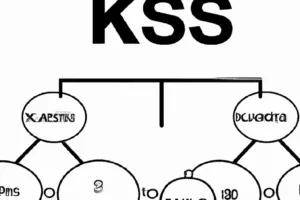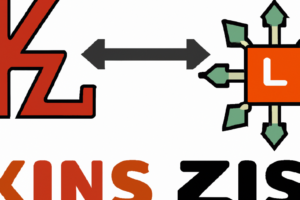
Personal health records (PHRs) are digital versions of patients' health information managed and shared by the patients. PHRs give people greater access to their medical history, test results, immunization records, prescription information, allergies, and other important data. However, traditional PHR systems face major privacy, security, data ownership, interoperability, and equitable access challenges. This has prevented widespread adoption and optimal use of PHRs.
Blockchain technology offers exciting solutions to many of these challenges. A blockchain is an immutable public ledger that provides transparency, decentralization, pseudonymity and cryptographic security by validating digital events. Early applications of blockchain show promise for managing and sharing PHRs in a more integrated, equitable and empowering ecosystem. This could greatly expand individuals’ control over their health data and enable better continuity of care.
As blockchain-based PHR systems emerge, understanding patients' perspectives is crucial. This study helps fill a key knowledge gap by qualitatively exploring healthcare consumers' intentions, motivations, concerns and requirements for adopting these potentially transformative technologies.
Background
In recent years, blockchain has attracted rapidly growing attention for potential applications in healthcare. A 2019 survey found that 16% of health systems already used blockchain in some form, with another 46% planning to deploy it [1]. Blockchain-based tools are emerging to enhance medical supply chains, clinical trials, provider credentials, payment processing and other functions.
However, one particularly promising use case is transforming PHR systems by giving people more control over their medical information. Despite increasing research on blockchain-enabled PHRs, few studies have deeply investigated patients’ willingness and concerns regarding using and sharing their health data through these new systems. This study aims to understand consumers’ intentions to adopt blockchain-based PHR platforms. Insights into individuals’ perspectives, fears and motivations can inform more patient-centered technical, regulatory and educational solutions to encourage wider acceptance of blockchain systems for health data management.
Objective of the Study
The objective of this study is to explore healthcare consumers’ intentions, concerns and informational needs regarding the adoption of blockchain-based PHR systems. We aim to identify the key factors influencing individuals’ willingness to integrate and selectively share different types of health data through blockchain platforms.
Methods
We conducted a qualitative study using semi-structured focus group discussions with healthcare consumers. This exploratory approach allowed in-depth probing of participants' perspectives.
Participants
Four 90-minute focus groups were held with a total of 29 consumers diverse in gender, age, race/ethnicity, education level, chronic condition status, technological savvy and blockchain familiarity.
Table 1 summarizes participant demographics:
| Demographic | Number of Participants |
|---|---|
| Gender |
|
| Age |
|
| Race/Ethnicity |
|
| Education |
|
| Chronic conditions |
|
| Technology proficiency |
|
Procedure
Semi-structured focus group discussions were facilitated by trained moderators using a discussion guide. Key topics included:
- Awareness and existing perceptions of blockchain technology
- Reactions to introductions and demonstrations of blockchain-based PHR concepts
- Perceived potential benefits and risks of using blockchain PHR platforms
- Privacy and security concerns related to storing and sharing health information via blockchain
- Concerns related to equitable access across sociodemographic groups
- Conditions that would increase willingness to adopt blockchain PHR systems
- Types of health information participants would be more or less willing to share via blockchain apps
Discussions were audio and video recorded, professionally transcribed, and de-identified. Transcripts were analyzed using an iterative process to identify key themes and illustrative quotes. Two independent coders read transcripts to develop a codebook capturing major concepts which was refined through team discussion. Transcripts were then systematically coded with NVivo 12 software and final themes summarized.
Results
Analysis revealed several key themes related to consumers' perspectives on blockchain-based PHR systems:
Limited Prior Understanding but Cautious Curiosity
Most participants had limited knowledge about blockchain technology, although a few had heard of cryptocurrencies. After moderators provided brief introductions to blockchain and potential health applications, participants expressed curiosity to learn more. Some conveyed initial skepticism until further questions were answered. A few participants remarked:
“I don't know much about it but it sounds kind of interesting.”
“I'm curious but also hesitant…how is it really different from what we already have with health records being electronic?”
Desire for Increased Control Over Personal Health Information
Nearly all participants reacted very positively to the idea of patients controlling access to their health records via blockchain systems. Having increased autonomy over health data sharing decisions was described as “empowering” and highly appealing. For example:
“I love the idea of being able to say who can look at my information. That would give me peace of mind.”
“Blockchain could give us more choices over our own health data. I should be able to share it how I want to.”
Enthusiasm with Conditions
While interested in blockchain PHR concepts overall, participants emphasized certain requirements needed for them to actually adopt these tools. User-friendly mobile interfaces, rigorous security measures, maintenance of strong patient-provider relationships, and demonstrated reductions in record errors were commonly mentioned conditions.
“I'd want it to be really convenient and easy to understand before using it.”
“Hospitals and doctors would need to be on board and communicating with this – you don't want conflicts.”
“I'd have to see how safe it is from hacking first before jumping in.”
Ongoing Privacy and Security Concerns
Despite acknowledging the increased transparency and security of blockchain systems, concerns persisted around keeping personal health information private and protected from hacking or unauthorized access. Some uncertainty remained about blockchain's superiority over current electronic health record methods, especially given recent large-scale data breaches.
“I still worry about others gaining access to my records, even if it uses encryption and blockchain.”
“Couldn't people find ways to ‘break the chain' or get around security protections?”
Importance of Access Equity
Many participants raised concerns about equitable access to blockchain PHR systems across patient groups. Specifically, they felt elderly, disadvantaged, and technologically illiterate groups may face barriers to realizing the potential benefits without sufficient training and interface design focused on diverse users.
“Some older folks I know would struggle a lot with this – they'd need a very simple app and good training to use it.”
“They should make sure its designed so people without lots of money or tech experience could still take part.”
Selectiveness Over Data Sharing
While willing to share certain types of data like immunizations, medications, and lab test results, participants expressed far more hesitance to share mental health history, sexual health information, substance abuse treatment, and other sensitive health details through blockchain platforms, even if encrypted.
“I'd share my cholesterol results but not my HIV status or antidepressants.”
“Anything around mental health, sexual issues or stigmatized topics I'd be reluctant to provide access to.”
Discussion
This study provides valuable qualitative insights into healthcare consumers' evolving perspectives on blockchain technology for PHRs amid early stages of adoption. Our findings reveal cautious openness to blockchain innovation for health data management coupled with nuanced concerns about privacy risks, the importance of robust security and equitable access, and selective sharing preferences.
To encourage wider acceptance and optimal use of blockchain-enabled PHR systems as they continue emerging, developers and policymakers must proactively address individuals' priorities through user-centered design, strong privacy protections, and public education. Maintaining strong patient-provider relationships and data interoperability with clinical records will also be critical. Additional quantitative research should gauge consumer perspectives as blockchain PHR adoption increases.
While not embraced yet with universally full enthusiasm, blockchain-secured PHRs hold exciting potential to give healthcare consumers more control over their vital health data. This exploratory study helps lay a patient-centered foundation needed to guide the thoughtful development of blockchain systems poised to earn people's trust and meet their evolving health information needs. With careful implementation focused on individuals' key requirements, blockchain could revolutionize PHRs and catalyze a new era of personal health data empowerment.
References
[1] HIMSS Media. “Despite the Hype, Most Health Systems Are Using Blockchain for Limited Applications, Survey Finds.” Healthcare IT News, 25 June 2019, https://www.healthcareitnews.com/news/despite-hype-most-health-systems-are-using-blockchain-limited-applications-survey-finds

Alejandro Rodriguez, a tech writer with a computer science background, excels in making complex tech topics accessible. His articles, focusing on consumer electronics and software, blend technical expertise with relatable storytelling. Known for insightful reviews and commentaries, Alejandro's work appears in various tech publications, engaging both enthusiasts and novices.
Follow us on Facebook







